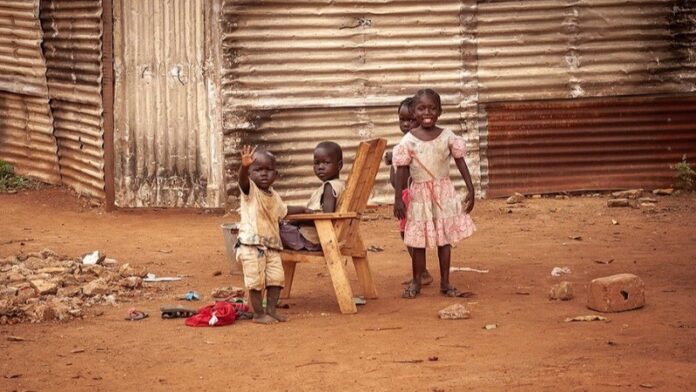Top Five Countries Facing the Largest Poverty Struggles. Poor population
Poverty remains one of the most pressing global issues, affecting millions worldwide. Despite progress in various regions, many countries continue to struggle with widespread poverty. The severity of this crisis is particularly evident in five countries that harbor the largest numbers of poor people. Here is an in-depth look at these countries, highlighting the magnitude of poverty and the underlying factors contributing to this persistent issue.
1. India: 218 Million Poor People (22% of the Population)
India, with its vast population of over 1.3 billion people, faces significant challenges in alleviating poverty. Despite being one of the world’s fastest-growing economies, approximately 218 million people live below the poverty line. This accounts for 22% of the population. The stark income inequality and uneven distribution of wealth are primary contributors to this high poverty rate. While urban areas may showcase rapid development and prosperity, rural regions lag behind, lacking basic amenities and opportunities. Issues such as inadequate education, poor healthcare infrastructure, and limited job opportunities further exacerbate the situation.
2. China: 134 Million Poor People (10% of the Population)
China, the world’s most populous country, has made remarkable strides in economic development over the past few decades. However, 134 million people, or 10% of the population, still live in poverty. The benefits of China’s economic boom have not trickled down evenly across the population. Rural areas, in particular, suffer from underdevelopment and lack of access to essential services. Despite government efforts to bridge the gap, regional disparities remain a significant challenge. The urban-rural divide, coupled with inadequate social safety nets, continues to perpetuate poverty for millions of Chinese citizens.
3. Nigeria: 86 Million Poor People (43% of the Population)
Nigeria, despite being rich in oil resources, faces severe poverty issues, with 86 million people, or 43% of its population, living in poverty. The country’s wealth from oil has not translated into widespread economic benefits for its citizens. Corruption, poor governance, and economic mismanagement have impeded effective poverty reduction. Many Nigerians live in dire conditions without access to basic services like clean water, healthcare, and education. The lack of infrastructure and persistent security challenges also contribute to the high poverty rates in the country.
4. Pakistan: 59 Million Poor People (29% of the Population)
In Pakistan, 59 million people, representing 29% of the population, live below the poverty line. The country struggles with economic instability, corruption, and inadequate infrastructure, all of which contribute to widespread poverty. Political turmoil and security issues further hinder economic progress and development efforts. The lack of access to quality education and healthcare exacerbates the poverty situation, trapping many in a cycle of deprivation. Efforts to address poverty in Pakistan face numerous challenges, including governance issues and insufficient resources.
5. Indonesia: 47 Million Poor People (18% of the Population)
Indonesia, with its diverse and large population, faces significant poverty challenges. Approximately 47 million Indonesians, or 18% of the population, live in poverty. Geographical challenges, such as the country’s vast archipelago, make it difficult to implement consistent and effective poverty alleviation programs across all regions. Rural areas, in particular, suffer from inadequate infrastructure and limited access to essential services. Despite economic growth, income inequality remains a barrier to poverty reduction, with many Indonesians still struggling to meet basic needs.
Several common factors contribute to the persistence of poverty in these countries:
Income Inequality: Disparities in income distribution prevent equitable economic growth and development.
Lack of Education and Job Opportunities: Limited access to quality education and employment opportunities traps people in poverty.
Corruption and Poor Governance: Ineffective governance and corruption hinder the implementation of poverty alleviation programs.
Limited Access to Healthcare and Basic Services: Inadequate healthcare and lack of essential services exacerbate poverty and reduce quality of life.
Environmental Degradation: Environmental issues, such as pollution and natural disasters, disproportionately affect the poor.
The global implications of poverty are profound, affecting economic growth, social stability, human rights, and health:
Hinders Economic Growth: Persistent poverty slows down overall economic progress.
Perpetuates Inequality: Economic disparities widen the gap between different societal groups.
Threatens Social Stability: High poverty rates can lead to social unrest and instability.
Undermines Human Rights: Poverty restricts access to basic human rights and freedoms.
Exacerbates Global Health Concerns: Poor populations are more vulnerable to health crises, affecting global health security.
Addressing poverty requires a multi-faceted approach involving governments, organizations, and individuals. Key solutions include:
Education and Skills Training: Investing in education and vocational training to equip people with the skills needed for better job opportunities.
Economic Empowerment Programs: Implementing programs that promote entrepreneurship and economic self-sufficiency.
Infrastructure Development: Improving infrastructure to provide better access to essential services and markets.
Social Safety Nets: Establishing robust social safety nets to protect vulnerable populations.
Good Governance and Anti-Corruption Measures: Ensuring transparent and effective governance to implement and sustain poverty reduction efforts.
Poverty is a complex issue that demands sustained and coordinated efforts. Addressing poverty in these five countries will not only improve the lives of millions but also contribute to global economic growth, social stability, and human well-being.

